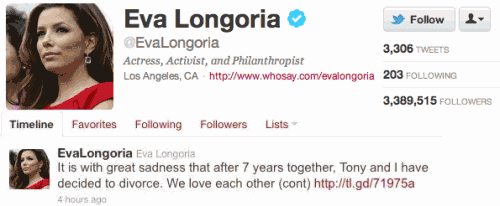Could social media be a third phase of human relationships? Consider this clip with Facebook’s Director of Engineering where he describes how the service allows people to scale their number of relationships. (The first 30 seconds are the real meat.)
There was a limit, for hundreds of thousands of years, on how much you could get done in personal connections. I can only meet so many people in a day, I can only take so many phone calls. But with Facebook, with Twitter, with Yelp, and social media in general, your ability to communicate with people is greatly increased. It’s more efficient, more effective, and definitely much more scalable.
What’s interesting is how this parallels what Robin Dunbar has famously argued about the origin of human language. When primates started living together in large societies, it became paramount to know who your friends and enemies were. This was accomplished by grooming–literally touching and pruning those who were your friends, and watching who was grooming others. Dunbar argues that language emerged as a more scalable version of grooming.[1] You can talk to a lot of people at once, and you can hear about the state of other relationships without having to be there to witness the “grooming event”.
I’m fascinated with the idea that social media is allowing a similar revolution in scale. So we have three stages:
Grooming

Relationships maintained by real-world touching. Other relationships must be physically observed. (E.g. see the descriptions of baboon life in A Primate’s Memoir by Robert Sapolsky)
Speech

Relationships maintained by conversation. Other relationships can be heard about from others. (E.g. see all human literature.)
Social Media

Relationships are maintained by light weight online interactions such as texts, likes, tweets, etc. (E.g. see the device that’s currently in your pocket.)
Of course, it could be that new technology only seems to allow such a revelation in scale. Harvard’s Sherri Turkle argues in her book and her NY Times article [2] that online relationships are mostly illusory.
And even if these promises of more relationships are true, is that what’s good for us?
[1] The internet is for gossip
[2] Sheri Turkle, The Flight From Conversation

Clearly, the intelligent cultural critic in one must understand social media (in its current manifestation) as a downgrade, back to ‘grooming’: you like another primate’s “status”, retweet their breakfast-instagram etc etc – it’s not that we’re really having any meaningful conversations via facebook or twitter. That’s also why everybody flocks to social media’s presumably powerful application in political revolutions, seeking to find a more sophisticated sense in it.
The other aspect of social media that intelligent people flock to are its applications in marketing: you tweet hashtags because it makes you an “expert” in social media and the amount of your followers will make it easier for you to land that consulting gig / get that promotion in your advertising agency (or you get the job directly via your twitter).
In other words: social media is *work*. That’s why there are services such as Buffer (http://bufferapp.com/) that help you automate your “social interactions with others”. Makes perfect sense for a business that simulates real world sharin’ n’ carin’, but the sad reality is that individuals use it just the same, especially when there’s no clear difference between work and play anymore.
TL;DR: social media isn’t fun, it’s work.
I disagree with Fabian, though of course that won’t be surprising since I’m in the guy in the video.
First things first, to say that grooming is a downgrade from speech is presumptuous in its own right and I very much doubt your claim that an intelligent cultural critic would make such an assertion. This is similar to the fallacy that evolution is a mechanism of progress, when in reality it is only a mechanism of change. We like to perceive these things as progress because we are naturally self centered, but there is no objective truth here. Every generation decries the cultural change which inevitably occurs in their lifetime as a degradation, only to have the next do the same, but yet we somehow all look back on the past with the sense that we have made progress. Curious that.
However, it may be fair to say that social media combines grooming (physical touching and visibility into activity) and speech at a fantastic scale. I’m connected to people who I care about on a daily basis that would have been untenable two decades ago. I am familiar with the cadence and rhythm of their daily life just as much as I am the major arcs of tragedy and triumph they face. This is more powerful and more sophisticated than political revolution to me.
How sad that people find connecting with their friends and family to be so much work. That hasn’t been my experience, which is mildly ironic since it is my actual job.
I don’t think anyone would deny that the “earlier” modes are preferable, given the choice. Considering a lover, would you would rather have a text message, have a conversation, or have them in your arms? Touch is no downgrade!
Still, each “advance” has allowed more and more complex relationships in those times when when we’re not physically close.
On the good/bad, progress/regress spectrums, social media seems to have expanded both sides of the slash. I’ve met kids and overzealous entrepreneurs who friend everyone they meet and failed to develop true relationships. I know seniors, oddballs, and other socially marginalized people who’ve found deep connections–and defeated loneliness.